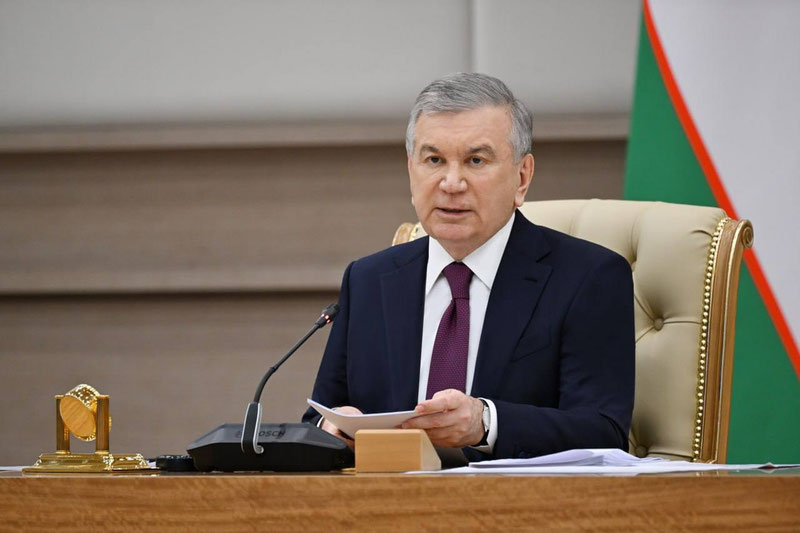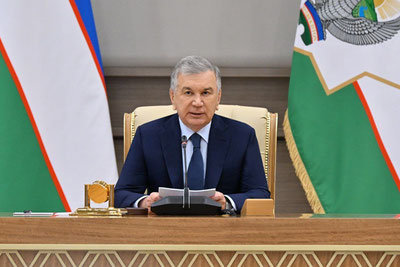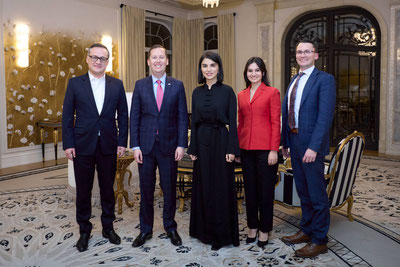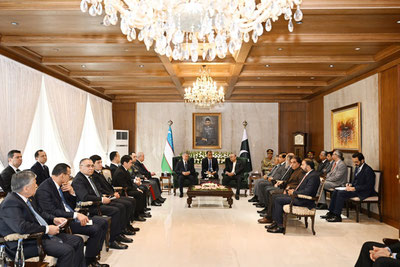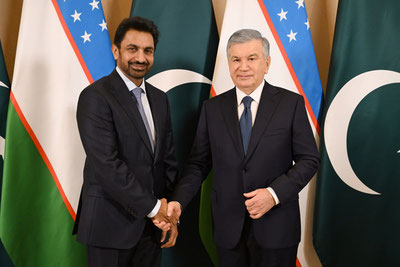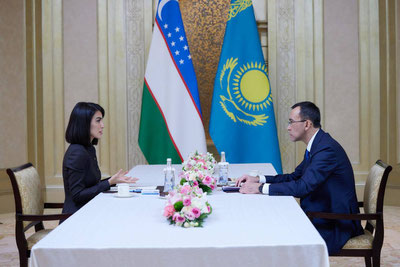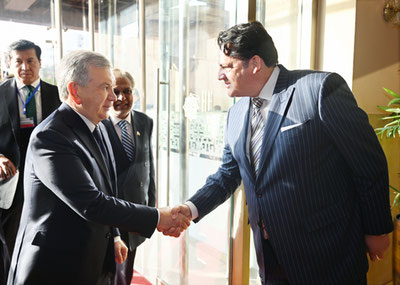President Shavkat Mirziyoyev chaired a videoconference meeting on February 7 to discuss the development of service sectors in the regions. The President's press service reported this.
Three years ago, a major program was initiated in this area, and today it is yielding results. An additional 1.5 million people in the service sector have gained stable incomes. The volume of services increased from 19 billion dollars in 2018 to 65 billion dollars. Especially, there was a "big jump" in information technologies, financial services, tourism, aviation, education, and medicine.
Of course, these are good developments. But there are far more opportunities. There is a lack of consistency in applying them across regions and sectors.
For example, there was a plan to attract 6 million tourists to Khorezm. However, there is not enough air and train traffic to support this. In healthcare, aviation, and energy, projects involving the private sector have exceeded 20 billion dollars. However, there are hardly any such projects in drinking water, sewage, and road construction.
At the meeting, such problems were analyzed, and the vast potential of regions and sectors was highlighted.
The demand for services has been rising as a result of the doubling of household income and purchasing power over the last seven years. To meet this demand, ministers and governors need to explore new service types daily, opening pathways for entrepreneurs.
This year, there is a plan to increase the volume of services by 15 percent to 82 billion dollars, increase exports to 8.5 billion dollars, and provide income for 2.5 million people.
The banking and finance sector holds the greatest opportunity. Specifically, developers have been allowed to convert 10-15 percent of the land in new developments to non-residential use. To make efficient use of this, it was proposed that banks buy properties directly from developers and rent or lease them to entrepreneurs under favorable conditions, potentially leading to the circulation of 50,000 square meters of non-residential space and the creation of 100,000 jobs.
A 30 percent increase in financial services is targeted. The initiation of community banking, which is becoming more accessible to the public, offers additional opportunities. Specifically, linking the public's frequent inquiries on cadastre, tax, justice information with the banks' information systems will increase the volume of services.
A new approach towards developing services in districts will begin this year. In this regard, 1,156 driver projects have been approved by local councils. One trillion soms will be allocated for their infrastructure.
This year, 72 coastal resorts, 154 tourist and gastronomic streets operating around the clock, and 62 recreational parks are planned to be modernized. 364 roadside and other service facilities will be constructed.
Two years ago, a one percent social tax was set for enterprises in the trade and services sector. Since then, the number of enterprises has increased by 1.5 times. Importantly, many entrepreneurs moved out of the "shadow", switching to proper salary reporting, which tripled wages and resulted in an additional 2.1 trillion soms in taxes.
Taking these into account, the proposal to extend this privilege for another three years was approved. Now, this benefit will apply to service enterprises with workers under 30 years old earning at least 3 million soms a month. Construction, trade, and general catering enterprises will be able to sign short-term, simplified labor contracts with workers.
In the last three years, 27 types of state services have been transferred to the private sector. However, there are still many services that entrepreneurs can provide within the ministries' system. This year, an additional 29 state services will be transferred to the private sector.
A task has been set to develop transparent, beneficial terms for renting or privatizing land plots and state property, and to make them known to entrepreneurs.
The Decree of the President of Uzbekistan signed on December 20, 2024, on the introduction of a new system for ensuring high economic growth and employment in the regions, created great opportunities in this direction. According to it, starting from March 1 this year, state objects in districts that have not been sold for up to 10,000 square meters and for six months will be directly leased to entrepreneurs for ten years. If the rent is paid on time for four years, the place will be privatized for the entrepreneur. Entrepreneurs who train young people in IT and foreign languages and provide international certificates will not pay rent for the first year.
The Head of our state emphasized the need to elevate the export of remote services to a new level. For this, studying the service market and demands in foreign countries and training specialists accordingly was tasked.
This year, 50 million dollars have been allocated for startup projects in the creative economy. This aims to support youth initiatives and attract compatriots working in foreign companies.
Generally, this year there is a possibility to increase the volume of IT services by 30 percent to 80 trillion soms, and to increase exports to more than 1 billion dollars. Instructions were given for the digitalization of services in regions and sectors.
A convenient transport infrastructure is very important for the development of services. Last year, transport services grew by 8.6 percent, amounting to 145 trillion soms. However, this is not sufficient for high economic growth.
Therefore, additional measures were designated to increase flights and train services between cities, build multimodal logistics centers, increase the share of transit cargo, and extend conveniences to taxis.
This will enable the volume of transport services to reach 185 trillion soms this year, and the export to 2.3 billion dollars.
Tourism is the biggest sector in the service direction. Over recent years, relations with more than 90 countries have improved, resulting in a nearly fourfold increase in foreign tourists. Last year, the export of tourism services was 3.5 billion dollars.
However, the potential of our country is much higher. For example, Malaysian and Indonesian Muslims wish to visit the graves of our scholars before going on Umrah. For them, the "Umrah Plus" service will be introduced.
International concerts and forums held in tourist complexes in Samarkand, Shahrisabz, Bukhara, Khiva, and Tashkent attract many. Visitors will also become customers of hotels, restaurants, shops, and other entertainment venues.
There are also many opportunities in the social sectors. For instance, last year the "Medical Services Hospitality" program was launched, facilitating the treatment of foreign citizens and increasing exports.
In the last eight years, 125 new higher education institutions have been opened. However, the export potential in this field is not fully met. Alternatively, some of the unused cultural and arts centers could be transferred to the private sector.
At the meeting, our President interacted with officials and entrepreneurs. Sector leaders reported on plans to employ 2 million 500 thousand people in the regions this year.
